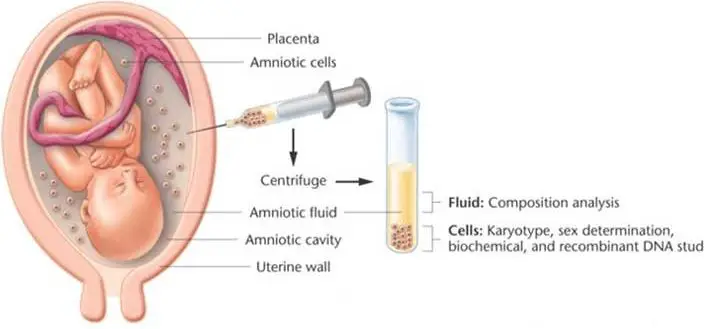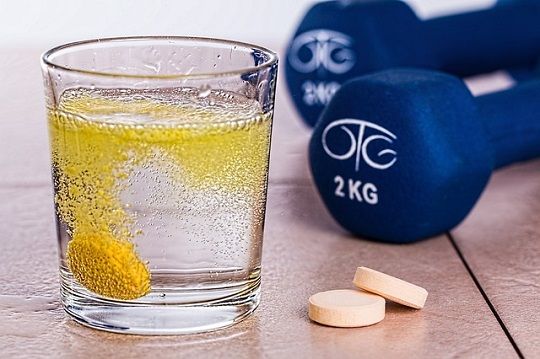Water is an essential requirement for life. After air, it is the second vital requirement for survival.
Water comprises approximately 70 to 80% of total body mass. It is so widely distributed in the body that there is no cell or tissue in the body where you don’t find water.
It is tough to survive even a few days without drinking water.
Similarly, it is also necessary for the growth of plants and animals which supply our food.
So, with this in mind, let us see the specific benefits of water.
Importance of water in the human body
1. For Metabolism and Biochemical Reactions

All the biochemical reactions in our body require water. These biochemical reactions occur by either synthesis of a substance or degradation of it.
Even the enzymes that regulate the biochemical reaction also depend on pH (water component) for proper function. Hence, It is the mediator of all the principal biochemical events in the body, including cell survival, birth, and death.
2. Body Physiology
Water also helps in all major functions of the body, like circulation, excretion, absorption, nerve conduction, respiration, reproduction, etc. The body’s physiology largely relies on nerve conditions, hormonal secretion, enzyme actions, etc. All these need water in one way or another.
3. Circulation
Blood is a connective tissue in our body that helps supply nutrition and oxygen to each and every cell. This blood comprises about 50% of water. Similarly, the water forms the lymph and cerebrospinal fluid (fluid in the brain) along with other fluid substances.
4. Absorption
It facilitates the absorption of food from the intestine by the process of diffusion and sink conditions. The absorbed food is carried by blood lymph and supplied to all organs and tissues.
5. Excretion
It helps in the collection of waste materials from all the cells and tissues of the body. From there, it is sent to the kidneys, skin, and lungs for excretion. Waste is expelled by the kidneys as urine in combination with water. Through the skin, it is excreted via sweat.
6. In reproduction
Water helps in the formation of media for the transport of sperms and ova. The baby in the womb is also surrounded by fluid made of water.

This amniotic fluid acts as a cushion from bumps and prevents injury to the baby. It also facilitates the exchange of nutrients and waste material from the baby. Hormone antibodies are also present in the fluid to help the baby grow and provide safety from infections.
7. Regulation of body temperature
Water helps in the loss of excess heat from the body in the form of sweat and also by respiration. When the body temperature is high, we drink more water to minimize it.
8. In eyes and mouth
It keeps the eyes, mouth, and other organs moist to perform smoothly. One cannot see clearly without moisture in the eyes.
Water in the eyes helps clean the lens regularly. Without moisture, it would be even harder to chew the food properly and then swallow it.
Hence, we need saliva formed from water in the mouth for the purpose. Did you notice that you cannot speak well with a dry mouth?
9. Cell
A cell is made of almost 70-80% water. This water forms the bulk of the cytoplasm and gives volume and shape to the cell. A dry cell gets shrunk and destroyed. So, water is always essential for cell structure.
Also, the presence of water helps with processes like cell respiration, protein synthesis, metabolism, and other reactions.
Without water, a cell cannot survive for long.
10. For sports
An athletic body has greater endurance in terms of muscle, respiratory capacity, heart functions, etc.
During exercise, the body temperature is high due to the faster breakdown of glucose, leading to high energy generation.
The excess temperature is expelled by the body as sweat to maintain homeostasis. This sweat largely contains water. Thus, water helps maintain body temperature during sports.
Also, heart rate and cardiac output are greatly enhanced during exercise to meet body oxygen demands. Enhanced cardiac output increases the volume of blood pumped by the heart each time. This blood volume is directly proportional to water in the body.
Without sufficient water, the cardiac volume could be low and insufficient to meet the athletes’ body demands.
Importance of water for plants
Plants are the prime source of food, clothing, and medicine for humans and animals. Water is of prominent importance to their nutrition, growth, and formation of food. The importance of water for plants is as follows.
For photosynthesis
Plants can make their food material by photosynthesis. This forms starch, a form of carbohydrate using water (from the soil), and carbon dioxide (from the air) in the presence of sunlight.
For transportation
Water helps in the movement of nutrients and other substances, like hormones, through the body. Since plants do not have a circulatory system, the distribution of material occurs by water. This happens through processes like capillary action. Imbition etc..
Germination of seeds.
Seeds can germinate only in the presence of water. In most cases, the seed gives birth to a plant or tree.
The seed is an inert or dormant form of a plant cell with a sufficient reserve of food material enclosed in a hard seed coat.
When dropped into the soil, the seed absorbs water by the imbibition process. The food material and other contents swell due to water, and the coat ruptures, revealing the growth and germination of the seedling.

In the process of enzyme activity, energy production is initiated due to the presence of water. Growing slowly, the seedling germinates out of the seed into a big plant.
Water also helps in the loss of heat from plants by the process of transpiration through stomata.
Importance of water on earth:
12. Sanitizer
Water is the key substance that cleans the earth’s surface. It carries away any waste material or loose material from the earth’s surface into the oceans. Thus water keeps the earth’s surface clean and fit for living.
Water is the safe method of disposal of industrial waste. Once waste from the industry is treated well, it is released into rivers to be carried away into the sea.
13 Water cycle
Waters’ ability to evaporate by heat and condense by cool helps in the water cycle. Because of this, there is sufficient fresh water to drink and for irrigation on the earth’s surface.
14 Aquatic environment
Water occupies up to 70.8% of the total landmass. It thus provides life for many marine animals and plants.
Other amazing facts about water:
♣ Water is absorbed to a large extent from the stomach itself and less from the intestine. Hence, when water is consumed, the thirst is quenched immediately as the body water level rises due to rapid absorption from the stomach.
♣ Water has a neutral pH of 7.0. This makes it a universal solvent.
♣ Water helps in the breakup of tablets, capsules of drugs, and other health supplements we take and helps in easy absorption into the body. 
So even syrups and other liquid dosage forms are prescribed for old age patients because of faster and complete absorption of drugs in water-made solution.
♣ Water carries carbon dioxide in the dissolved form from tissues to excrete by the lungs. It also, to some extent, supplies oxygen to remote areas of the cell.
♣ Water is also formed in the body directly by the process of combustion of carbohydrates with oxygen.
♣ Most of the body’s waste materials are water-soluble. Any water-insoluble materials are converted to a water-soluble form for natural excretion through the water.
♣ Water levels in the cell and body compartments are maintained by ions of salts. That’s the reason why the increase in salt intake increases water levels in the body. Thereby, there is a rise in blood volume and the associated rise in blood pressure. Also, there are chances of edema due to water accumulation in the body for a prolonged period.
Thus, the importance of water is huge. But due to human activity, it is prone to pollution. This water pollution, in turn, affects human health.
helped me out alot
thanks
Luv dis man!!!
Hey Carrie Ann! welcome again.
Man i lav this.
Vhutahilo, glad that u liked the article..